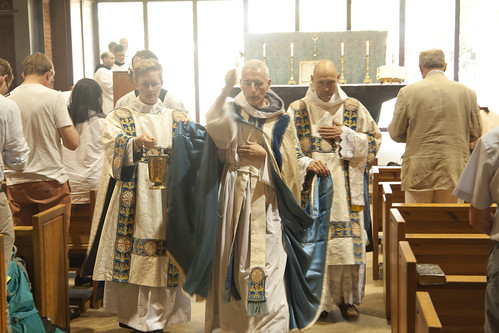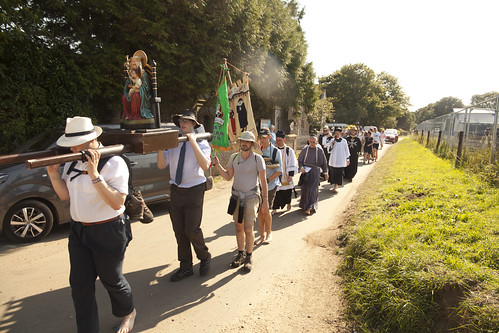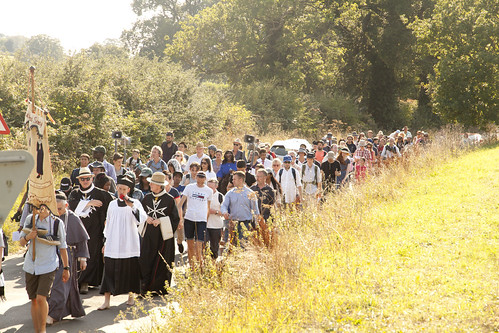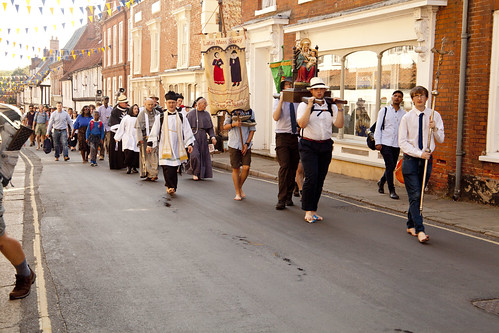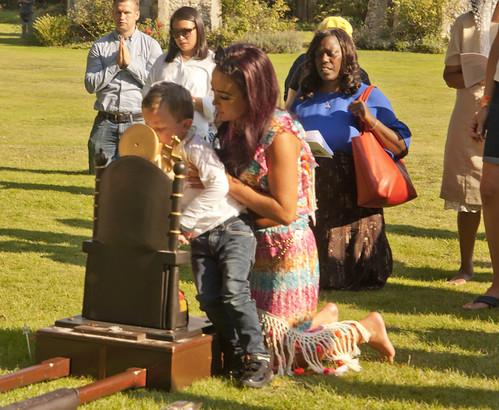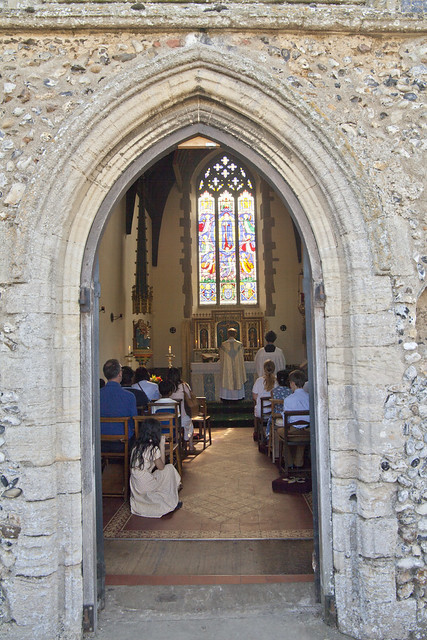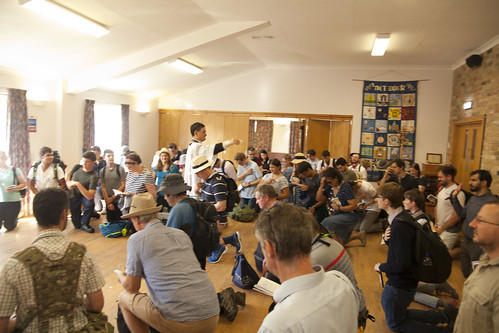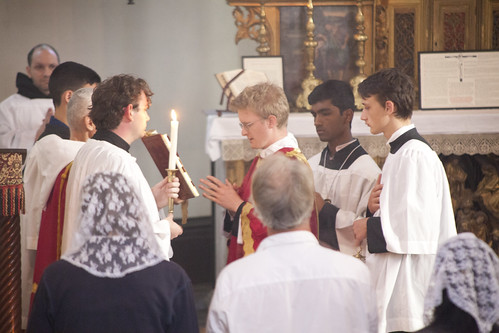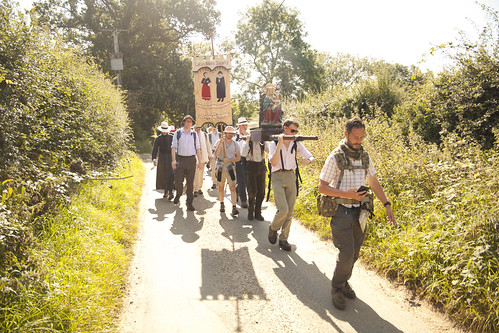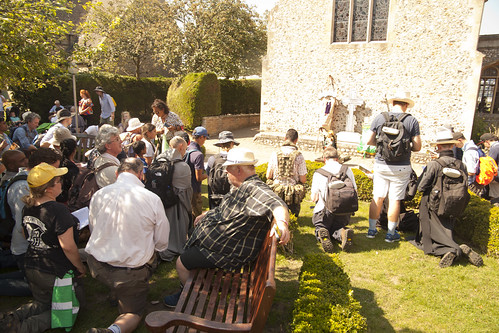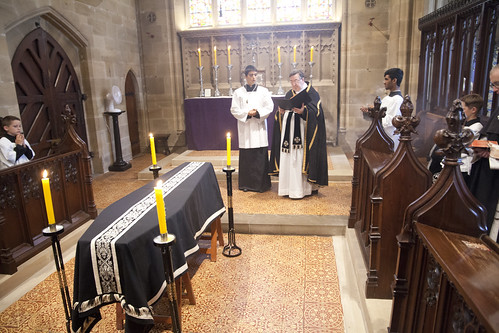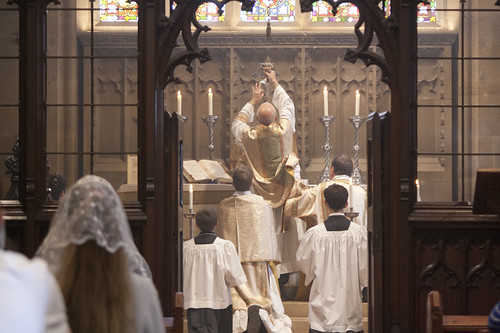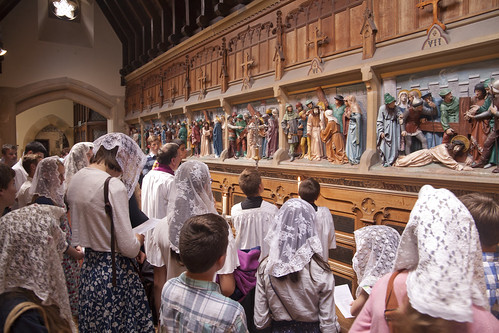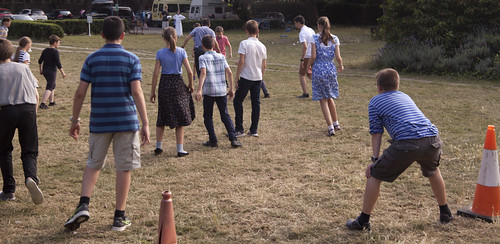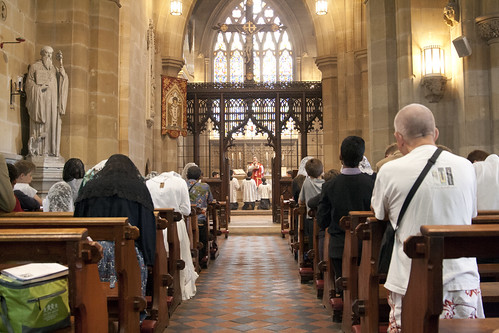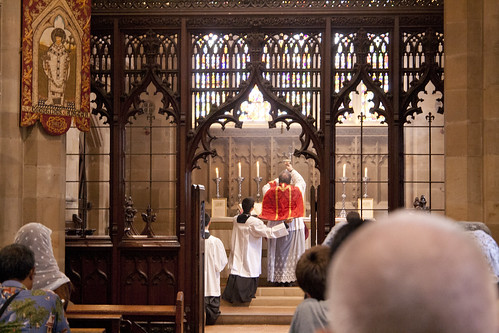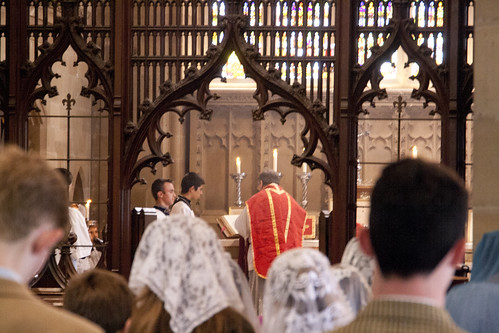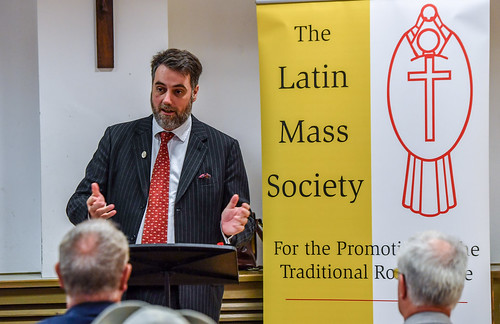Chairman's Blog
Cardinal Pell and contempt for justice
My latest on LifeSiteNews.
---
Young Catholic Adults annual retreat 25-27 Oct
The weekend will be full-board. YCA will be running the weekend with the Schola Gregoriana of Cambridge who will be holding Gregorian Chant workshops.
There will also be a Marian Procession, Rosaries, Sung Masses, Confession and socials. All Masses will be celebrated in the Extraordinary form.
Please note to guarantee your place this year Douai Abbey have requested that everyone books in 3 weeks before the start of the weekend i.e.4th Oct 2019.
More information: http://youngcatholicadults-
To book:- https://bookwhen.com/
Young Catholics deserve answers, not scorn
Cross-posted from Rorate Caeli.
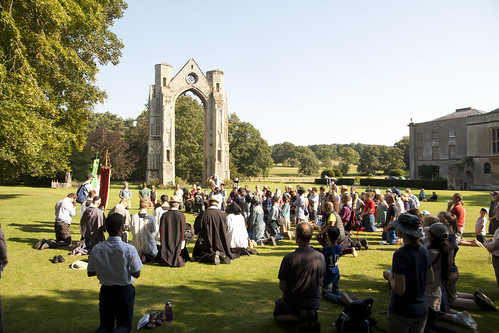 |
| LMS Pilgrims at the site of the Holy House in Walsingham on Sunday. |
Recent days have seen one of those waves of attacks on Traditional Catholics on social media. I have responded to one aspect of it, that of simple charity, with a Twitter-thread you can see here. Here I want to look at another aspect of it: the kinds of things the supposedly hateful traddies are talking about.
More photos of the Walingham Pilgrimage 2019
Fr Terrance Naughton OFM Conv was the celebrant at the High Mass in the Catholic Shrine's Reconciliation Chapel. Since it was a Sunday, we had the Asperges, though in the Shrine it is possible to have a Votive Mass of Our Lady.
The chapel presents a challenge for photography, with strong sunlight pouring through the windows behind the altar.
We begin the procession to the site of the Medieval Shrine in the ruined Priory: the Holy Mile.
At the site of the Holy House, which was the original shrine at Walsingham dating to before the Norman Conquest, we have a final series of devotions. We finish the Rosary we began on the procession, sing the Te Deum, the Litany of Loreto, and Faith of Our Fathers, and finally have the blessing of returning piligrms from the Roman Ritual.
In the meantime pilgrims venerate the statue we have carried for the last 15 miles. This has been blessed for public veneration; we also use it for the Oxford Pilgrimage.
Thus ends the Pilgrimage. For pilgrims staying the night locally, we always have a Sung Mass in the Slipper Chapel on Monday. This medieval chapel marked the start of the Holy Mile; since it came back into Catholic hands in the early 20th century, it has been restored and become the centre of the Catholic shrine.
Support the Latin Mass Society
Photos of the Walsingham Pilgrimage
High Mass in St Ethelreda's, Ely. We had four priests with us so High Mass was possible every day of the pilgrimage. (Votive Mass for Pilgrims.)
Fr Michael Rowe, who is based in Perth, Australia, blesses the pilgrims before the start of the walking, in the Methodist Hall in Ely, where we had breakfast (and dinner the evening before).
Mass in the chapel of Oxburgh Hall is always a highlight of the pilgrimage, thanks to the hospitality of the Bedingfeld family who still live in the historic Catholic house. Fr Henry Whisenant sings the Gospel (feast of St Batholemew).
Walking through the charming village of Great Massingham, where we stop on Saturday evening.
At Great Massingham we camp on the playing field behind the village hall. We had an enrollment of the Society of St Tarcisius, the LMS' guild for altar servers, of six new members.
Setting off again after an early lunch on Sunday. On Sunday we carry the processional statue with us.
The final approach to Houghton St Giles and the Catholic Shrine: the three chapters join up into one procession.
To be continued.
Support the Latin Mass Society
SCT Summer School: more photos
Asperges at Mass on the first day (Sunday)
Benediction in St Augustine's Shrine
Requiem for Benefactors
We made a pilgrimage to Aylesford. After Mass some of the children were clothed with the Brown Scapular.
Aylesford also has a beautiful Rosary Walk.
High Mass in the Shrine.
On Friday, we had Stations of the Cross, in the Shrine.
Football in the grounds of the Retreat Centre.
This year's sewing project (for those not playing football!).
Support the Latin Mass Society
SCT Summer School: some photos
I have had trouble getting my photos of the St Catherine's Trust Summer School off the memory cards, but here are some, at last. The Summer School took place 27th July to 3rd August, in the Divine Retreat Centre, which is over the road from St Augustine's Shrine in Ramsgate.
It was a great privilege to be able to have Mass during the Summer School in the Shrine church, which thanks to recent restoration, now looks as Pugin intended it, with a splendid Rood Screen. In these photographs Fr Andrew Southwell, our Chaplain, is celebrating Mass.
Sohrab Ahmari: the story of his conversion
Support the Latin Mass Society
Patreon page launched
I thought I would experiment with a Patreon page. My thought is that I am producing a fair mumber of articles, and from time to time doing long audio interviews, for which I am not paid, and often are not easily seen by my regular readers.
If people would like to support this work, and the other things I do, they can do so through Patreon, and I can make some of this material available to them.
So here is the link: Become a Patron!
Support the Latin Mass Society
Roosh takes the 'God' pill
My latest on LifeSite is about Roosh, the writer of 'Game' books: books about how to pick up women. Particularly in light of his repudiation of meaningless sex, I am planning to write more about him, probably on this blog.
-------------------

